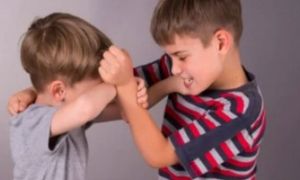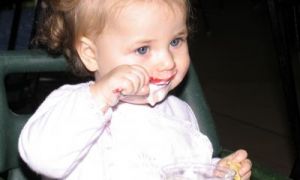Aggression is a type of behaviour that is triggered by the intention of causing harm to another person who wishes to avoid that harm. Violence is an extreme subtype of aggression, a physical behaviour with the intention of permanently injuring another person. The following article will provide information on What Is Aggressive Behaviour, Prevention Strategies, Intervention Strategies and more.
What is Aggressive Behaviour?
Aggression in children can take many forms: Angry tantrums; hitting, kicking, or biting; hot-headed outbursts that destroy property; cool-headed bullying; verbal attacks; attempts to control others through threats or violence.
Examples of aggressive behaviours include physical violence, such as biting, hitting, and kicking. One of the most common causes of this type of aggressive behaviour is impulsivity and poor decision-making which can lead to behaviour that's interpreted as aggressive.
Though aggressive behaviour is a normal part of emotional and behavioural development, the very common fact is almost every child hits, kicks, and yells when he's overwhelmed by strong emotions. First, parents or carers need to try to overcome and resolve the anger issues by staying calm, helping the child to teach to express themself by naming emotions, knowing the child’s pattern, and by identifying the things that trigger them. But if someone finds that a child's aggressive behaviour is becoming more frequent and severe, or your efforts to curb it have no effect, you'll need to consult your paediatrician or a trained mental health professional, such as a child psychologist or psychiatrist.
The signs of an aggressive child are:
- They can be verbally forceful.
- They have a hard time controlling their emotions.
- They have difficulties interacting with others at school.
- They have trouble concentrating.
- They have problems with self-control.
- They get physical.
Prevention:
To prevent aggressive behaviour, everyone who deals with the child such as teachers, parents, and school, needs to be very careful while dealing with them. Schools can circumvent the development of aggressive and violent behaviours by ensuring:
- High-quality school policies and practices
- Clear school and classroom rules and procedures
- Consistent communication of policies and practices across the school community
- Consistent supervision of students across school areas
- Involving parents and carers in school-wide actions
- Involving multiple stakeholders in school-wide actions
- staff working with students to raise awareness about social, emotional, and behavioural issues.
Teachers also have an important role to calm down or handling aggressive behaviour of children. They need to follow the below steps to deal with an aggressive child:
- Model calm behaviour
- Do not take their words personally
- Have a private, non-threatening talk with the student
- Problem-solve with the child
- Support the academically frustrated student
- Intervene early
- Have the child engage in activities that vent their frustration
- Speak in a firm, no-nonsense manner to stop a student's aggressive behaviour. When responding to the child, pay attention to your verbal as well as non-verbal language. Even if there is yelling at you, stay calm
Intervention
There are a number of programs and approaches that have been shown to reduce peer aggression and violence. They include:
- programs that aim to change risk factors and prevent antisocial behaviour by focusing on issues such as school climate, class climate, and authoritative teacher behaviour
- cognitive behavioural, social-emotional, and peer mentoring programs
- common cognitive-behavioural techniques include identifying the antecedents and consequences of aggressive behaviour, learning strategies for recognizing and regulating anger expression, problem-solving and cognitive restructuring techniques, and modelling and rehearsing socially appropriate behaviours that can replace
- individual cognitive-behavioural programs that address peer aggression
Apart from these, you can follow the following ways to intervene in aggressive and violent behaviour of children:
- teach children about feelings
- create an anger thermometer
- develop a calm-down plan
- cultivate anger management skills
- don't give in to tantrums
- follow through with consequences
- avoid violent media
- avoid negative talk
- don't assume or make judgments
- be encouraging
- avoid power struggles
Intervention is always very important not only in educational learning but also in behaviour modification. The intervention also brings the family a greater understanding of their child's needs and how to break learning down into small steps for their child. When children know what they are expected to do and can be successful, they have fun learning in almost any activity and want to learn more. Slowly the child’s behaviour also gets modified by the warmth of intervention.
Children with high levels of anger may have trouble developing appropriate social skills and therefore have greater difficulty interacting with peers and building positive and supportive relationships. It is essential to support children and understand their needs.
Further Reading
Developing an understanding of stages of behaviour is important as this determines how a child's behaviour and understanding is developing typically for their age. For more information, please read the following: Stages Of Behaviour
The strategies listed will enable you to maintain responsible behaviour and help you to prevent undesirable behaviour, for each child. For more information, please read the following: Behaviour Management In Childcare
Children who display challenging behaviour don’t usually do so ‘just because they want to’. There’s often a reason behind their behaviour or it might be their only way of telling you something’s wrong. All behaviour is a form of communication. Therefore, it’s essential that you understand the causes of challenging behaviour. For more information, please read the following: Supporting Children With Challenging Behaviour
When a child displays challenging behaviours, there can be significant impacts for both children and adults that may contribute to educators feeling overwhelmed. This article will help you to develop a behaviour management plan which can be used during hard times. For more information, please read the following: Behaviour Management Plan
The following article provides information on Strategies To Deal With Specific Types Of Physical Aggression, General Strategies and Long Term Strategies For Physical Aggression and more: Strategies For Dealing With Physical Aggression In Children
Reference:
Aggressive and Violent Behaviour, Department Of Education NSW


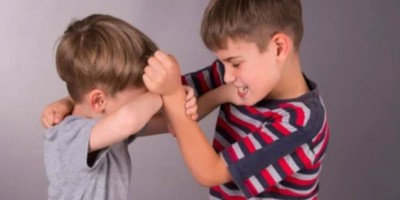
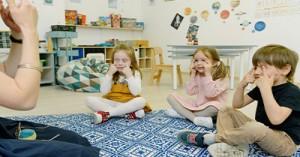


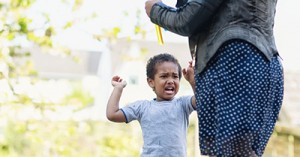
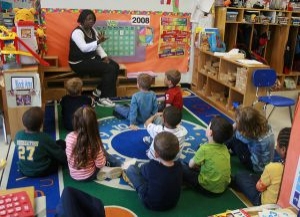 Working as a childcare professional can be a challenge especially when dealing with behavioural problems which may arise. The techniques we use when dealing with
Working as a childcare professional can be a challenge especially when dealing with behavioural problems which may arise. The techniques we use when dealing with There are different types of behaviour that children can display and sometimes it can be hard to manage, especially if a child is having behavioural
There are different types of behaviour that children can display and sometimes it can be hard to manage, especially if a child is having behavioural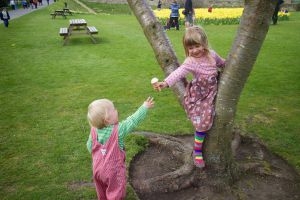 As a parent, your behavioural expectations of your child can be higher than what is actually developmentally appropriate for your child's age.
As a parent, your behavioural expectations of your child can be higher than what is actually developmentally appropriate for your child's age.
 As Educators, there will be many instances where you will need to write about a child's behaviour. For a behaviour management plan, assessments, half-yearly or
As Educators, there will be many instances where you will need to write about a child's behaviour. For a behaviour management plan, assessments, half-yearly or As Educators when communicating with Parents (through verbal or non-verbal communication), there will be times where we need to discuss issues or concerns that may
As Educators when communicating with Parents (through verbal or non-verbal communication), there will be times where we need to discuss issues or concerns that may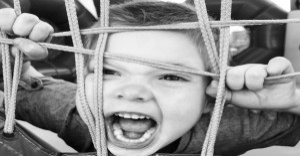 Challenging Behaviour is when a child does something that hurts themselves and/or other people.
Challenging Behaviour is when a child does something that hurts themselves and/or other people.
 As part of your child's development it is normal for your child to have anxiety and fears. A baby commonly shows a fearful sign to
As part of your child's development it is normal for your child to have anxiety and fears. A baby commonly shows a fearful sign to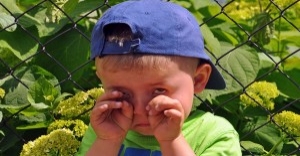 It's always difficult to bring up behavioural issues with parents, it can be nerve wrecking to tell a parent that their child misbehaves but that
It's always difficult to bring up behavioural issues with parents, it can be nerve wrecking to tell a parent that their child misbehaves but that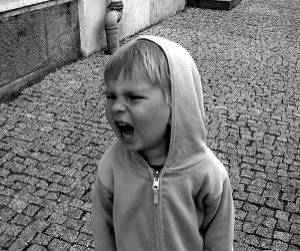 All children deal with anger on a daily basis. Thinking about it as a child, there is a lot to be angry about. Elder people
All children deal with anger on a daily basis. Thinking about it as a child, there is a lot to be angry about. Elder people It is important to understand that your child behaviour problems could not just be from attention seeking. There are many factors to take into consideration
It is important to understand that your child behaviour problems could not just be from attention seeking. There are many factors to take into consideration